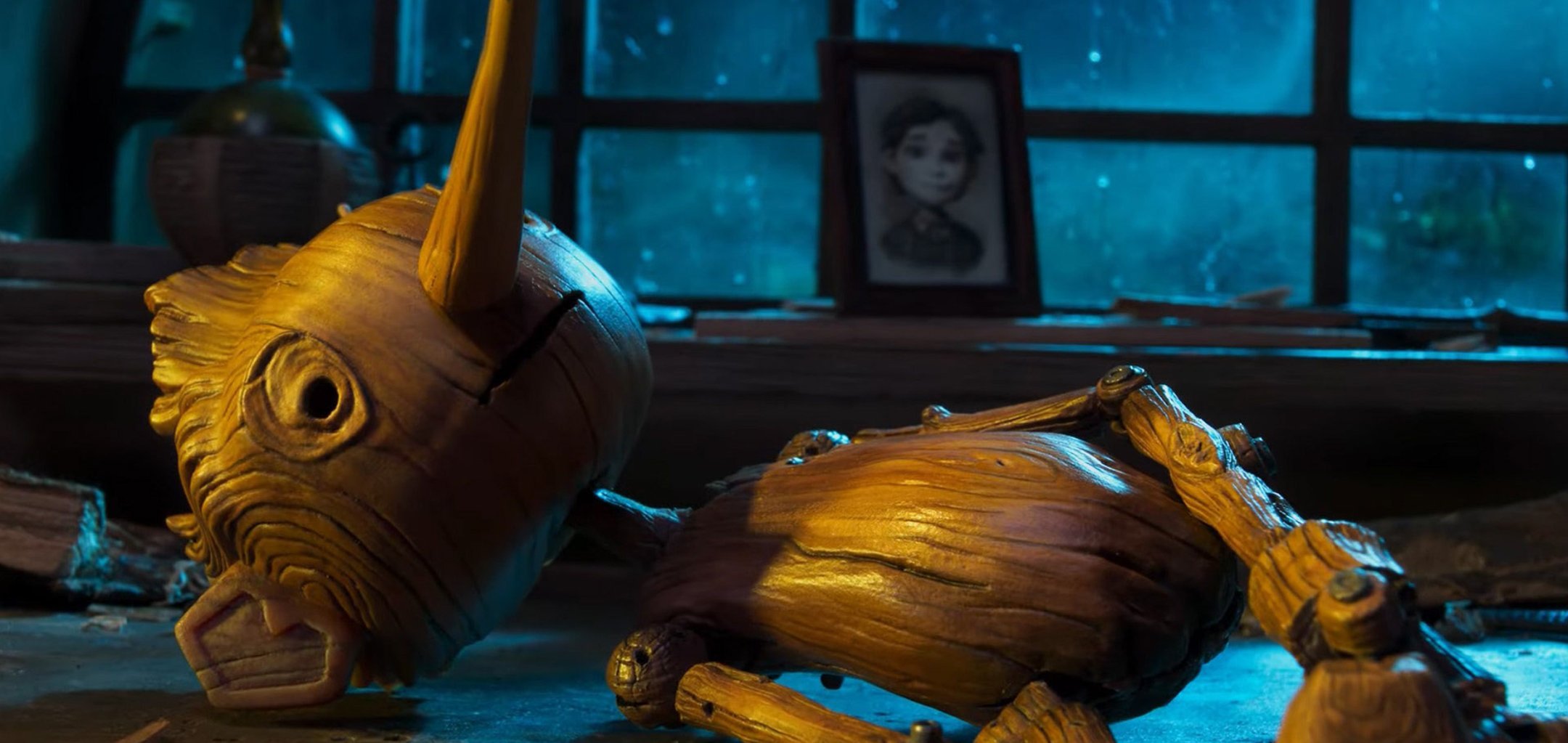Film Review - Guillermo del Toro's Pinocchio
Images courtesy of Netflix.
It may not be Pan’s Labyrinth, but it is definitely one of the best animated movies of the year.
Guillermo del Toro’s Pinocchio is a breath of fresh air in the animated feature landscape. Directed by the titular auteur himself, this adaptation takes the classic story of the wooden boy into the dark fantasy territory del Toro is known for. While most of us know the tale, this version adds a new layer by being set in Fascist Italy, and introducing themes of individuality, life, and innocence. This highly anticipated stop-motion adventure sells for the most part, and its cultural significance for the world of Western Animation is already rippling into effect.
Just by the very first frame of the film, one could gush instantly about the quality of the animation on screen. The craft and care that goes into the puppets and sets is truly a work of art. The subtle motions of expressions and body language are accentuated by the fabrics and materials of the articulate character designs. There is a real appreciation for the art form that oozes out from every scene, as well as the original source text. Pinocchio himself, his design inspired by the works of Gris Grimly, is a wonderful blend of the more wooden beginnings of the book to the dark fantasy-realism of the film. The story of this adaptation itself, while having some dark themes and scenes, is very reminiscent of early Don Bluth in how it’s conveyed; it doesn’t talk down to its young audience. The writers are aware that children are able to comprehend the core messages of the film; being able to find what’s right from your own individual perspective. That message alone is another reason why this adaptation is superior to other Pinocchio adaptations, and that is because del Toro has managed to deviate from the sources in terms of message and ideas. He even believed that Carlo Collodi’s book, the man who first wrote the Pinocchio tales, was seen as just another book on child domestication - del Toro wanted his adaptation to showcase disobedience as Pinocchio’s biggest virtue. The film hones in on this idea and excels in showing children how disobedience can be good for your own freedom.
One of the big unfortunate truths when it comes to every story is that they aren’t perfect. Guillermo del Toro’s Pinocchio does have its flaws. However, it must be said that these flaws don’t entirely detract from the film. While the story does an amazing job at conveying dark and mature themes to children, sometimes there is a lingering want to see more of it. One of del Toro’s strengths is having a fantastical story be amplified by his anti-fascist/anti-authoritarian messages; Pan’s Labyrinth and The Shape of Water are testaments to that. Pinocchio, however, being a children’s film, has to be purposefully dampened in order to not be too intense. As said before, the film is great at what it’s trying to achieve, but it would have been powerful to see the wooden boy grow a deeper understanding of what it truly means to be human through more “immediate” responses to loss, war, and individuality.
That being said, Pinocchio is one of the best animated movies of the year. Beloved by the animation community, both practitioners and audiences alike, it must be known that this film could hold a powerful significance in the American film and animation industry. There are few live-action filmmakers who understand the power of animation aside from Guillermo del Toro, such as Richard Linklater and Steven Spielberg, and it’s easy to see how much del Toro respects and values the medium. Pinocchio has a lot of nominations under its belt, and this could potentially send a message to the industry. Animation has been undervalued by the larger film industry; lack of unions, dismissal at the Oscars, the growth of AI, etc. Hopefully, Pinocchio and del Toro are able to send a strong message about the wonders of animation.
But whatever happens, happens.
Guillermo del Toro's Pinocchio is playing as part of ACMI’s Best 22 of 2022 program, Saturday 17 Dec 2022 to Tuesday 14 Feb 2023. For tickets and more info, click here.

